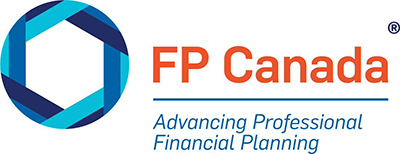TORONTO and MONTRÉAL, April 30, 2020 /CNW/ - The FP Canada Standards Council, a division of FP Canada™, and the Institut québécois de planification financière (IQPF) have jointly released the 2020 Projection Assumption Guidelines and Addendum, for professional financial planners across Canada. The 2020 Guidelines come into effect April 30, 2020.
Developed and updated annually by a committee of individuals who are all licensed financial planners (through either CFP® certification or the F.Pl. license in Québec) or actuaries or CFA charterholders, the Guidelines help financial planners make long-term financial projections (10 or more years) that are free from potential biases or predispositions.
In times of turbulent and volatile markets, it is important to note the long-term nature of these projections. The 2020 Guidelines were developed prior to the significant market volatility that began in February 2020, triggered by the global COVID-19 pandemic. Professional financial planners can provide perspective on shorter-term current events as they relate to clients and their individual circumstances. Planners must always use professional judgement in the application of the Guidelines for long-term projections.
The Projection Assumption Guidelines for 2020 are as follows:
Inflation rate: |
2.0% |
Return rates |
|
Short-term: |
2.4% |
Fixed-income: |
2.9% |
Canadian equities: |
6.1% |
Foreign developed market equities: |
6.4% |
Emerging market equities: |
7.1% |
YMPE or MPE growth rate: |
3.0% |
Borrowing rate: |
4.4% |
"Periods of market volatility, like the one we've seen recently, can trigger fear and uncertainty among clients. The Projection Assumption Guidelines provide a useful tool for financial planners in helping clients stay focused on their long-term plan," says Lesley Poole, CFP, Chair of the FP Canada Standards Council's Standards Panel. The Standards Panel is an independent panel of CFP professionals and members of the public, which as part of its mandate, oversees the committee that develops the Guidelines.
To ensure full transparency and replicability, the Guidelines are drawn from a variety of reliable and publicly available data sources, including the Canada Pension Plan Actuarial Report; Québec Pension Plan Actuarial Valuation; and historical data based on the S&P/TSX (Canadian equities) Composite index, the S&P 500 (U.S. equities) index and the MSCI EAFE (Europe, Australia, Far East) index. The FP Canada Standards Council and IQPF also conduct a joint annual survey of investment professionals to support the development of the Guidelines. With this year's Guidelines, for both the short-term and fixed-income assumptions, the 50-year historical average rate was removed as a data source in determining these assumptions, resulting in a lower rate forecast for these asset classes. The decision was made to review the validity of this portion of the assumption calculation given its position as a significant outlier for both the short-term and fixed-income calculation inputs. Since these historical variables may so significantly depart from future expectations, the committee determined that they should not be used in the current environment.
"As we navigate these unprecedented times, clients are looking to their financial planners for sound guidance and reassurance," says Martin Dupras, a.s.a., F.Pl., M.Fisc., ASC, a member of the Projection Assumptions Guidelines Committee. "Armed with these Guidelines, planners can help their clients build and implement long-term financial plans that are rooted in unbiased and objective financial projections."
The Guidelines are accompanied by an Addendum containing the data sources on which the Guidelines are based, as well as the specific calculations for inflation and rate-of-return guidelines. The Addendum offers financial planners an opportunity to fully understand and replicate the recommended calculations for their own use.
About The FP Canada Standards Council™
A division of FP Canada™, the FP Canada Standards Council™ establishes and enforces financial planning standards, sets the certification requirements for professional financial planners and develops and delivers certification examinations. The FP Canada Standards Council ensures FP Canada certificants―Certified Financial Planner® professionals and Qualified Associate Financial Planner™ professionals―meet appropriate standards of competence and professionalism through rigorous requirements of education, examination, experience and ethics. Learn more at FPCanada.ca.
About the Institut québécois de planification financière
For more than 30 years, the Institut québécois de planification financière (IQPF) has been protecting the financial well-being of Québec consumers by overseeing the training and qualification of financial planners according to the highest standards of quality. In Québec, only professionals holding a diploma issued by IQPF are authorized to use the title of Financial Planner (F.Pl.) in Québec. IQPF is the only organization in the province entirely dedicated to and reserved for financial planners, setting their professional standards of practice and raising public awareness about their important role. More information is available at IQPF.org.
CFP®, Certified Financial Planner® and logo are trademarks owned by Financial Planning Standards Board Ltd. (FPSB) and used under license. All other trademarks are those of FP Canada™. © 2020 FP Canada™. All rights reserved.
SOURCE FP Canada

For media inquiries, please contact: Megan Harman, FP Canada, [email protected]

Share this article